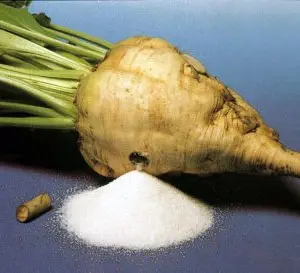 Sugar Beet
Sugar BeetLife can be bittersweet, both literally and figuratively. It’s up to us to find a way out of the current situation. Right now, thousands of tons of fruit are going to waste due to a lack of sugar, and there are recommendations to make various preserves without sugar. However, products made without sugar are generally of lower quality. Our bodies need sugar: it boosts energy, alleviates fatigue, and strengthens the nervous system.
Processing sugar beets at home is feasible, although we won’t achieve the same refined sugar or granulated sugar that factories produce. However, making sugar syrup and using it for compotes, cookies, jams, and jellies is well within reach for anyone willing to grow sugar beets in their garden.
First, wash the beets thoroughly, peel them, cut them into pieces, and place them in a stainless steel pot for boiling. For every 22 pounds (10 kg) of beets, you’ll need about 1.5 liters (6.3 cups) of water (the beets should be fully submerged). To prevent the beets from burning, place a rack or a clay or porcelain plate at the bottom of the pot. Once the beets are cooked, squeeze out the juice and continue to boil it until it reaches a thick, sour cream-like consistency. The resulting syrup has a pleasant sweet taste and a brown color, making it suitable for various sweet treats.
The beet syrup contains about 70 percent sugar, meaning that 1 kg of syrup can replace 700 grams of sugar. Store this syrup only in glass containers. To prevent crystallization, you can add citric acid (1 gram of acid per 1 kg of syrup).
Sugar beets also have medicinal properties. In folk medicine, their juice is used to treat hypertension, kidney diseases, constipation, scurvy, and anemia. Fresh beet leaves are used for ulcers and skin swelling. Sugar beets are the most sugar-rich crop in our country, containing up to 20 percent sucrose, along with vitamins C and B, organic acids (such as malic, tartaric, lactic, and citric), phosphorus, calcium, sulfur, manganese, zinc, copper, boron, iodine, fluorine, and a number of other elements.
Therefore, I encourage everyone who has the opportunity to grow sugar beets in their gardens to take this seriously in the spring, so you can have sugar syrups for making sweet preserves. The byproducts will also be useful for feeding livestock.
